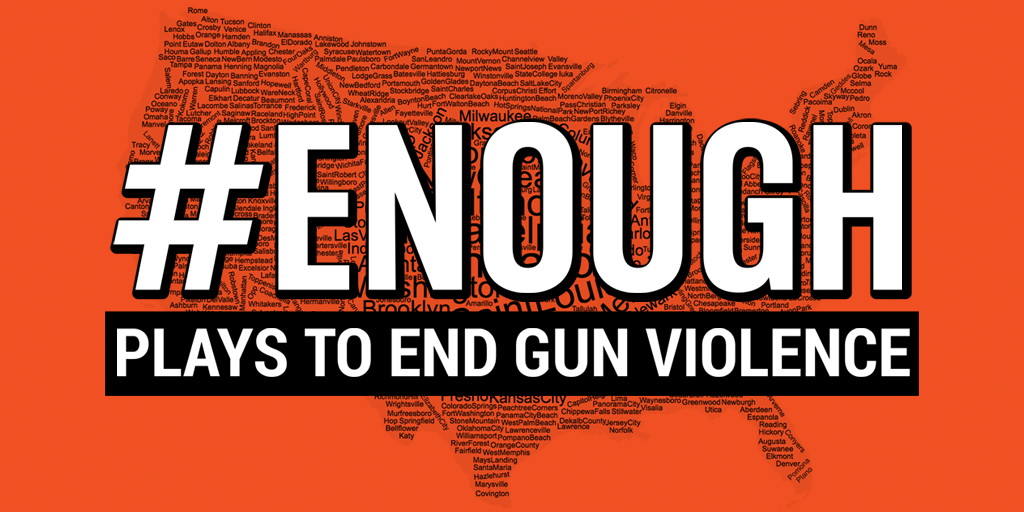American students, raised in the shadow of repeated school shootings, are not just witnesses to a grim reality but active participants in reshaping the narrative. Following the Parkland school tragedy in 2018, theater aficionado turned activist Michael Cotey developed “Enough! Plays to End Gun Violence,” an initiative that encouraged young playwrights to write stories that examined the far-reaching effects of gun violence on American life.
At the time of the Parkland shooting, Cotey was a 30-something Chicago-based actor and director. Reflecting on the cycle of shootings and theater rehearsals, Cotey noted, “We all got really upset and incensed about it. Then we went on to making plays and making theater and going about our normal life.” This realization fueled his mission: to employ theater’s transforming power for a cause bigger than the stage.
At one point in his career, Cotey had worked on “The Laramie Project,” a play based on the true story of the brutal murder of Matthew Shepard, a young gay man in October 1998 in Laramie, Wyoming. Inspired by this play, Cotey initiated a yearly contest challenging high schoolers to write short plays addressing the effects, not the act, of gun violence.
Increasing the impact of youth voices
The structure of the contest empowers new writers by offering them not only a platform but also stipends, seminars, publication chances, and invaluable feedback from established playwrights such as David Henry Hwang and Tarell Alvin McCraney. The short yet powerful plays avoid depicting shootings directly, instead focusing on their consequences.
One of this year’s winning writers, Niarra C. Bell, created The Smiles Behind, which depicts a heart-wrenching confrontation between a little girl and a police officer on the verge of shooting her brother. Her inspiration stemmed from the tragic violence against young Black men, and her work aimed to offer a perspective that respects both the Black community and law enforcement.
The stories in the plays range from a humorous look at the limitations of a “school kindness week” in reducing gun violence to a behind-the-scenes look at a 911 call center. These riveting readings occur in various settings, including community centers, schools, and theaters, and engage local communities in critical conversations.
“They’re getting local people to come,” Michael Cotey says. “Maybe the mayor or a state senator [will] see these plays, respond to them, be a part of a conversation, and also get greater insight into what young people are thinking about.”
Action and healing
The plays have become a focal point of a collaboration between the South Bend Civic Theatre and Connect 2 Be The Change, an organization formed by women who have tragically lost children to gun violence. They train young people to be change agents through these performances.
Cotey recalls a watershed event when the Mayor of South Bend attended a reading and was confronted with frankness from the young actors: “Hey, Mr. Mayor, you’re not really doing as much as you should be doing.” These acts not only raise awareness but also demand accountability from local governments.
Beyond the stage
These plays have long-reaching effects that go far beyond mere entertainment. They’ve turned bereaved mothers into activists, bystanders into directors, and a one-page concept into a catalyst for community healing. Cotey’s intention to present these plays in every state in the United States, including the White House, reflects the larger goal of igniting dialogue, action, and societal reform.
While “Enough! Plays to End Gun Violence” may not pay Cotey’s bills, its value transcends monetary advantages. One play at a time, it’s a movement that promotes empathy, dialogue, and agency.
Crafting a new narrative
Young writers are rewriting the narrative on gun violence through the prism of theater. They are not only storytellers but also agents of change, engaging communities in intense debates and compelling leaders to take significant action. Their words and stories contain the blueprint for a safer, more compassionate, and hopeful future, not just for these kids, but for the country as a whole.












